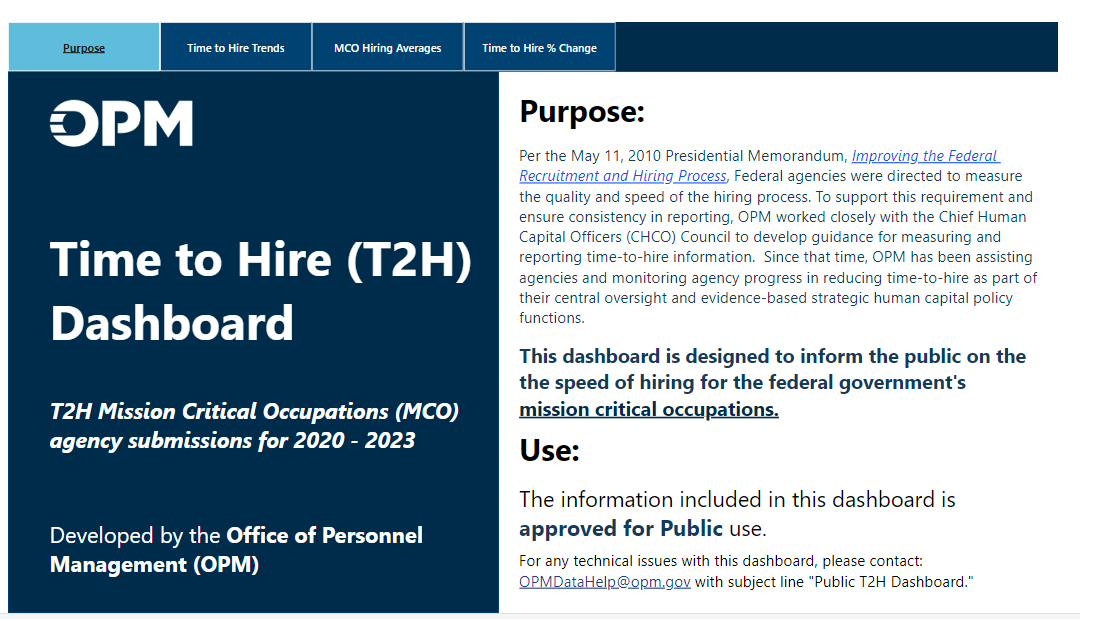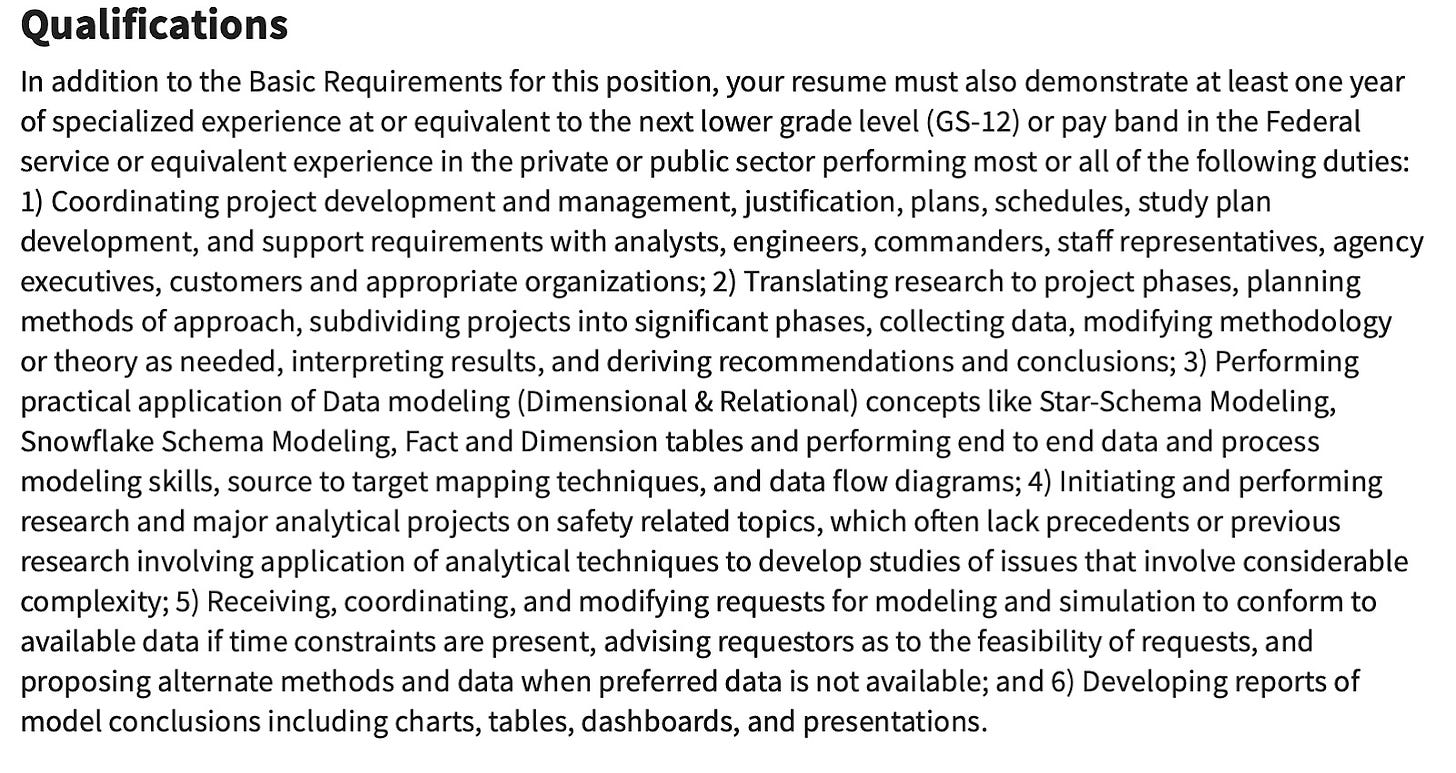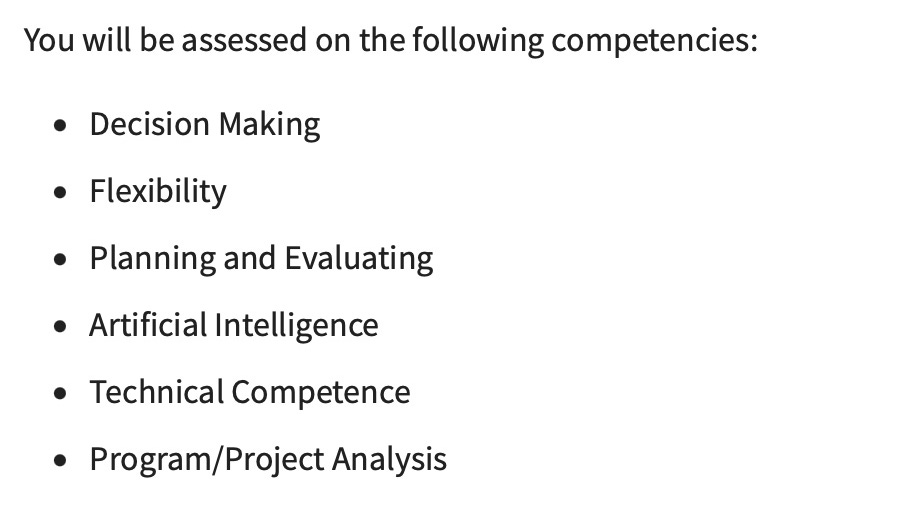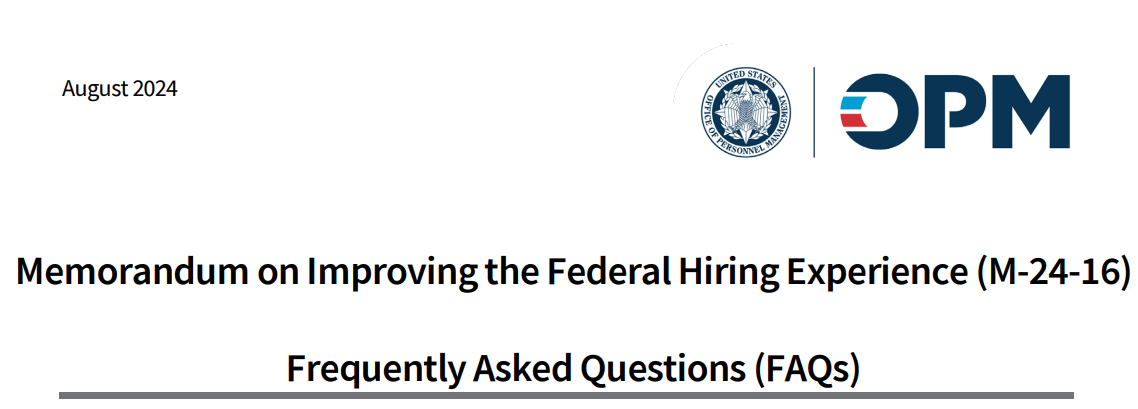Federal Tech Talent: Notes from Both Sides of the Process
This year, I applied to a handful of federal jobs and I was reminded of how frustrating the process can be. Job titles and descriptions often feel vague or contradictory, making it hard to decipher what the role actually involves. Federal technical jobs often require specific coursework: twice I successfully appealed when reviewers misread requirements or miscoded my transcript, something many qualified candidates might not realize they could do.
And then there's the timeline. When I mention that it once took a year for an agency to get back to me, someone always tops it: ‘I once didn’t hear back for two years!’
But I've also been on the other side of it. I've helped with hiring for two different agencies now, and it wasn't always easier. There are numerous rules and limited discretion. Like a lot of other things in government, it can feel like this process is more designed to prioritize documenting compliance rather than to meet the core objective.
This matters to me: I care about federal hiring because I care about the mission of my agency. And I recognize that state capacity - our ability to actually accomplish our mission - is dependent on who we hire.
Understanding the hiring system is critical, not just for landing a role but for improving how our agencies function. So let's begin with the basics: how to find federal technical jobs.
The Search Process
Civil servants aren’t the only group doing technical work in the federal government — and likely not the largest. But I’m focusing on civil service positions here because, while contractor hiring varies widely by company, civil service hiring follows some common patterns.
Most civil service job listings live on USAJobs, but not all do. For instance, two agencies that do technical hiring — the U.S. Digital Service (USDS), a team of technologists, designers, and product managers working to improve government services like taxes, healthcare systems, and veteran benefits, and the Chief Digital and Artificial Intelligence Office (CDAO), which oversees the DoD's AI initiatives — have their own websites. Check AI.gov for those and other agencies that may not appear on USAJobs.
When you apply through these alternative channels, the process may be faster or differently structured — for example, some agencies start with recruiter screenings. But regardless, you’ll need a specific type of resume.
Creating an Effective Federal Resume
If you’re new to federal hiring, you might be surprised by how structured the resume review process is. Reviewers — whether in HR or the actual office doing the hiring— compare your resume against a specific set of requirements. They typically score each one in a spreadsheet and have limited discretion. They can’t check your GitHub profile or make assumptions based on your job titles.
Here are two examples of requirements. This is a very specific set of requirements:
This is a more general one:
Map your experience to the requirements in the job listing. Details are key. For instance, if data analysis is one of the tasks, describe not just what you analyzed, but the tools you used, your approach, and the impact of your work.
Less effective: "Analyzed data in Python"
More effective: "Used PySpark to analyze Unliquidated Obligation (ULO) data across multiple fiscal years, identifying $10M in dormant obligations. Visualized findings with Plotly/Dash dashboards to support timely deobligation decisions by senior leadership."
It’s also always helpful to include these elements in your resume if you have them:
Technical details: Don't just list technologies you've used – explain how you used them. Instead of writing "Experience with: Python, SQL, AWS," describe what you built, maintained, or improved using these tools.
Leadership elements: This can include leading projects, managing teams, mentoring others, or successfully implementing a new process or tool.
Purpose and impact: Describe the outcomes of your work, such as improving workflows, solving problems, or supporting broader organizational goals.
Because of how structured this review process is, it’s generally a good idea to tailor your resume for each role.
Other Resume Considerations
There are additional resume nuances to consider when applying for federal roles.
Format: Reverse chronological order works fine for federal resumes.
Length: Include all relevant information that demonstrates your qualifications. This will likely bring you to at least a 2-3 page resume, except for entry-level positions. Be mindful of any length restrictions mentioned in the job posting.
Acronyms: Spell out acronyms on first use, even ones that seem obvious within your field.
Beyond the Resume
Several other aspects of federal hiring aren't obvious.
Job Listings Can Undersell Roles: Positions often aren't described well. The actual work might be more technical or interesting than the listing suggests. And once you're in, being proactive often leads to opportunities beyond your official duties.
Networking is Valuable: Connections inside agencies can help you decide where to apply by giving you information about projects, tech stacks, and culture.
Negotiation is Possible: After receiving a tentative offer, you can sometimes negotiate for a higher salary step or credit for prior experience to increase leave accrual rates.
Supporting Better Federal Hiring
How can we improve federal hiring, whether we're hiring managers or just care about our agency's capabilities?
There are many available tools for improving your hiring process – though you may need to educate your agency about them. An August OPM/OMB memo outlines several practices:
You can use job titles that make sense to applicants. While the official position might be "IT Specialist," you can advertise it as "Data Engineer" if that accurately describes the role.
You don't have to rely on candidates' self-assessments of their experience to determine eligibility. Instead, you can use subject matter experts to evaluate candidates' technical skills and qualifications. And you can also use them throughout the whole process — from drafting the job listing to interview design and doing technical interviews.
For many technical job categories, you can use direct hire authority. This lets you review all applications and resumes directly, rather than having a non-technical reviewer pre-screen candidates and potentially filter out qualified people.
What If You Don't Have Subject Matter Experts?
If your office is hiring its first data scientist or software developer, you may wonder how to evaluate candidates without existing in-house expertise. The solution? Look beyond your immediate office. Search within your broader agency for technical experts who can help – you can find them through internal networks, LinkedIn, or by working with HR. I've seen this work well in practice: at my current job, we initially borrowed technical experts from other offices before we were staffed-up enough to take this on ourselves.
And if you're already the technical person in your office, this is your chance to improve hiring. Consider volunteering to help with technical hiring efforts across your agency. I did this as an Army civilian, and it was a great way to both contribute and learn more about hiring.
Making Change Happen
The federal hiring process has rules and structures intended to ensure fairness, but in practice, these can become barriers that favor people who already know how to navigate the system.
Within these constraints, there are things we can do from both sides:
For job seekers, clearly map your experience to the requirements and making it easy for reviewers to see your fit. Yes, it's frustrating to have to write your resume in a particular way – but understanding these requirements can help you get past the initial barriers.
For those already in government, it means both improving our own hiring processes and helping others navigate them. Use every available tool — from direct hire authority to borrowed subject matter experts. Share what you know about how the process works. Volunteer to help with technical hiring across your agency.
I know this can be a fight – I often hear "my HR won't let me do that." But it's worth having because effective hiring enables the work we do. Better hiring practices don't just help individual candidates or offices – they help build a government that can better serve the public. And that starts with making sure everyone has a real chance to compete.
_____________________________________________________
Additional Resources On Technical Hiring:
So You Want to Hire a Data Scientist: how to identify your actual data needs (analyst, engineer, or scientist), write accurate job postings, and structure interviews around the skills you need your candidate to have.
How to Become a Government Data Scientist how to transition into technical roles in government, emphasizing the importance of gaining technical skills at your current job, personal projects, continuous learning, and strategic career moves.
Three Questions to Ask About Your Job Listings: how to critically evaluate your own job listings by asking if qualified candidates exist, if those qualifications match the job duties, and if the job is appealing to the right people.





Great practical advice for both sides of government hiring!